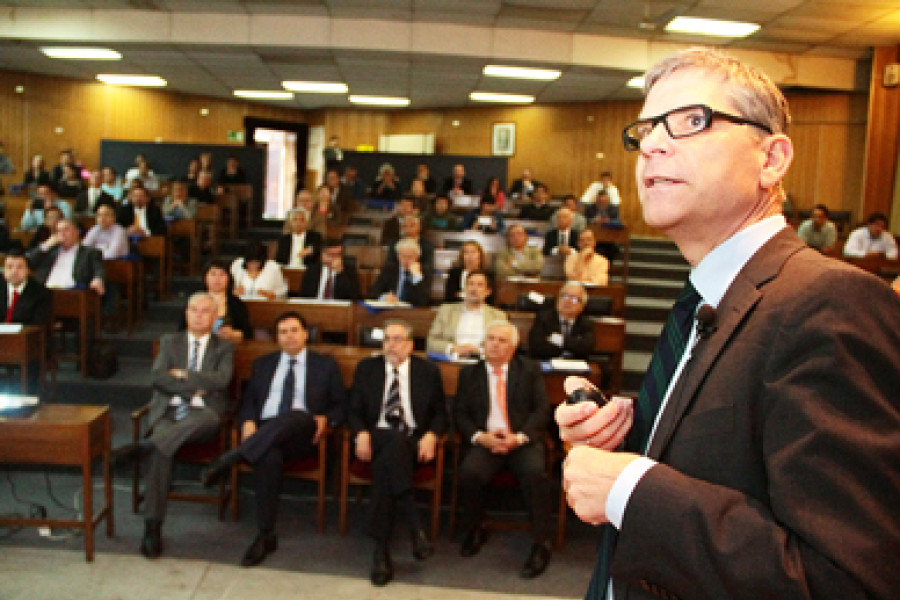To contribute with a cleaner and safer energy source and help our country to achieve energy independence, the “Hydrogen Economy and Sustainable Development” Seminar was held at our university. The activity was organized by the Faculty of Engineering, in the context of its 100th anniversary and it gathered national experts from the public and the academic sectors. The key lecture was delivered by the international speaker Dr Walter Theodor Czarnetzki, Vice President of Research and Technological Transfer of the Esslingen University of Applied Sciences, Germany.
To contribute with a cleaner and safer energy source and help Chile to achieve energy independence from other countries, the “Hydrogen Economy and Sustainable Development” Seminar was held at the Enrique Froemel Auditorium of Universidad de Santiago. The activity was organized by the Faculty of Engineering, in the context of its 100th anniversary.The activity was headed by Dr Juan Manuel Zolezzi, President of Universidad de Santiago, who said that universities, as dynamic centers for knowledge building, cannot keep out of the important sustainability processes that our countries are undergoing today, as they are the best tool to develop the foundations for a good future for our societies.“Hydrogen produced in a clean and economical way could be used to compensate most of the energy insufficiency that we have,” he stressed.“Our corporation, true to its public service tradition, has committed its best research and teaching resources and infrastructure to contribute with professionals, research and developments that help in policy making and at implementing a “Hydrogen Economy” in Chile,” he said. “A scientific work commitment made among universities, state-run bodies and the private sector will allow to find a sustainable energy alternative to reduce the current dependence on hydrocarbons and greenhouse gas emissions,” Dr Zolezzi said.For his part, Juan Carlos Espinoza, the Dean of the Faculty of Engineering said that the activity “is an example of the constant interest that this academic unit has in the field of energy, what facilitates the reflection on the need to progress in generating technological innovations that contribute to this area.”The seminarThe seminar was introduced by Andrés Romero Celedón, Executive Secretary of the National Energy Commission, who said, “To address climate change, we shall change from a hydrocarbon-based civilization to a hydrogen-based one. Besides, this seminar is relevant, as in Chile we are trying to make a long-term energy policy for 2050, to overcome the energy problems that our country constantly faces.”He added that all initiatives aimed to this goal should be supported by universities and professionals of all over the country, to have more security, sustainability and independence in this matter.Presentations and speakersDuring the activity, Dr Walter Theodor Czarnetzki, Vice President of Research and Technological Transfer of the Esslingen University of Applied Sciences, Germany, gave the key lecture “Hydrogen Economy for a Sustainable Future.” Patricio Rousseau, Electrical Engineer of Universidad Católica de Chile, and Dr José Zagal Moya, professor at the Faculty of Chemistry and Biology of our university gave presentations too.The participants in the “Hydrogen Economy in Chile” panel discussion were Dr Walter Theodor Czarnetzki; Anselmo Peiñan, representative of the Chilean Economic Development Agency (Corfo, in Spanish); José Miguel Arriaza, Regional Secretary of the Ministry of Energy, and Professors Dr Fernando Corvalán and Patricio Rousseau. The discussion was moderated by the lawyer Gonzalo Salgado, an expert in energy regulations. Translated by Marcela Contreras


